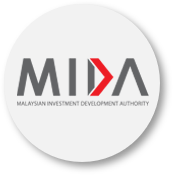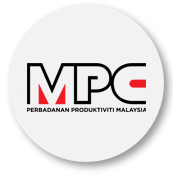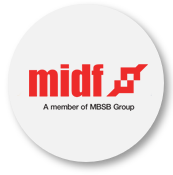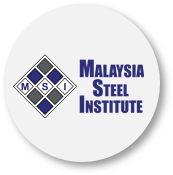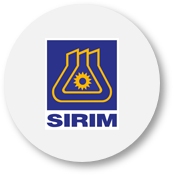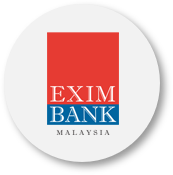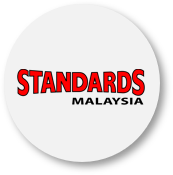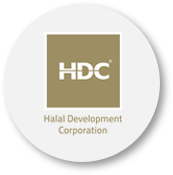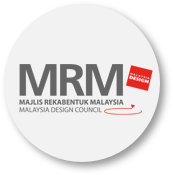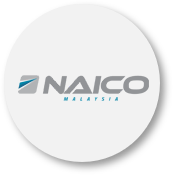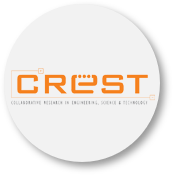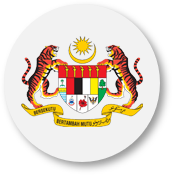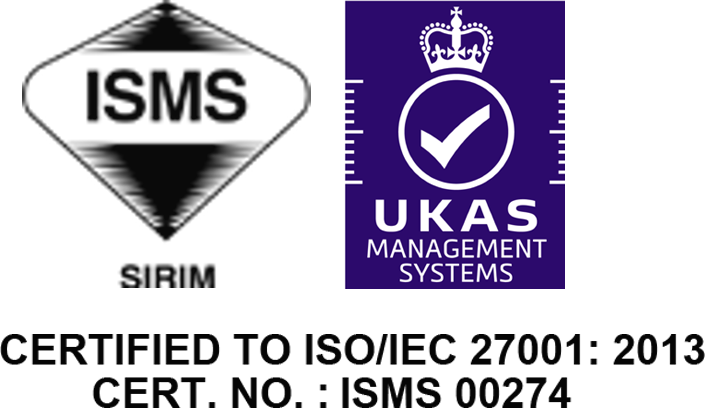Overview
The Government has put in place an institutional framework and necessary facilities to assist the services industry meet the challenges posed by the globalisation and liberalisation process.
Malaysian service providers can refer to the framework of support organisations set up as focal points which also function to help service providers gain international exposure. It is through these organisations that policies and strategies to boost the services sector are also channelled. The section under Institutional Framework gives you the profile of these organisations and their respective activities.
Besides this, the Government also provides facilities for the Malaysian service providers, in export, financing, investment and capacity building. A network of facilities and agencies have been put in place to help the service providers gain the necessary footing that will propel his/her business into the international arena. These are profiled in the Facilities section which will provide an insight into the various initiatives to assist service providers.
Institutional Framework
In tandem with the progressive liberalisation of the service sector, the Government has put in place several support organisations to primarily:
-
act as platforms or focal points for all service providers;
-
facilitate the formulation of strategies that will boost our international competitiveness as well as attract inbound investment;
-
monitor milestones in policy implementation which includes benchmarking against international best practices and adopting international standards;
-
be a conduit through which service providers get domestic and international exposure; and
-
coordinate efforts in disseminating information to service providers.
Strategic Reform Initiatives (SRI)
On 5 July 2011, the Government announced Six Strategic Reform Initiatives (SRIs) as the second critical component of the Economic Transformation Programme (ETP) executed by the Performance Management Delivery Unit (PEMANDU).
51 policy measures were identified to enable Malaysia to become more competitive and thereby continue to hold international presence. 37 of these were clustered under 6 SRIs.
Each SRI has a lead minister/ministers who are responsible for the successful implementation of the initiative. The 6 SRIs are:
- Competition, Standards and Liberalisation;
The Minister of International Trade & Industry; The Minister of Science, Technology & Innovation and the Minister of Domestic Trade, Co-operation & Consumerism are responsible for their respective area.
- Public Finance;
The Second Finance Minister leads this SRI.
- Public Service Delivery;
The Chief Secretary to the Government is responsible for this SRI.
- Government's Role in Business;
This is led by the Prime Minister.
- Human Capital Development; and
The Minister of Human Resources leads this.
- Narrowing Disparities.
The Minister in the Prime Minister's Department, Economic Planning Unit leads this SRI.
Of these, the Competition, Standards and Liberalisation (CSL) SRI has a direct effect on the outlook of the services sector. This SRI seeks to improve Malaysia's competitiveness through:
- the newly enacted Competition Act 2010;
- the liberalisation of the service sector; and
- increased standards and quality for Malaysian goods and services.
The first round of liberalisation was in 2009 covering 8 sectors (27 sub sectors) with no equity condition imposed, followed by the second round of liberalisation, in 2011, of 7 broad services sectors with 100 per cent foreign equity participation to be allowed in phases throughout 2012. This autonomous liberalisation effort goes beyond any of Malaysia's existing trade in services commitments.
These 7 service sectors ( which incorporate 17 +1 services sub-sectors) identified for liberalisation are:
- Telecommunications;
- Healthcare;
- Professional services;
- Environmental services;
- Distributive Trade services;
- Education services; and
- Courier services.
Government support and facilitation in the services sector is a collaborative effort among various Ministries/agencies/organisations. The main three who have been entrusted with this task are:
- The Malaysia Services Development Council (MSDC);
- The National Professional Services Export Council (NAPSEC ); and
- The Malaysia Service Providers Confederation (MSPC).
Malaysia Services Development Council (MSDC)
MSDC has, since its formation in 2007, evolved and in the process gained greater focus in its primary role as the platform to monitor, review, discuss and resolve issues that involve the development of the services industry, with the involvement of the relevant Ministries/Agencies.
MSDC monitors and coordinates the work of Ministries implementing the liberalisation programmes where Ministries will submit their strategic plans for the development of the services sub sectors under their purview and give updates of such measures.
With the second round of autonomous liberalisation in 2011, MSDC's role included reviewing rules and regulations that impede the growth of the industry and assisting SMEs to develop and export their service.
MSDC has specific Working Groups (WG) that reflect the stakeholders in the services sector. At present, it is guided by the Services Sector Blueprint which was launched in March 2015 during the inaugural meeting of the Special Committee on Services chaired by the Prime Minister.
The WGs within MSDC are responsible for monitoring the implementation of the 4 Policy Levers in the Services Sector Blueprint. They are:
- Internationalisation Strategy
- Investment Incentives
- Human Capital Development
- Sectoral Governance Reform
MSDC's Terms of Reference
- Set guidance and direction for a coherent approach towards the development of the services industry to transform the services sector to become globally competitive.
- Improve services sector performance through strategic and policy recommendations on regulatory reforms, liberalisation policies, institutional strengthening, promotional activities and capacity building.
- Co-ordinate, monitor, evaluate and report progress of national and sectoral development plans and address implementation issues.
- Build and analyse data to measure the performance and the impact of the various strategies/policies on the services sector.
- Meet three times a year back to back with the Economic Council Special Committee on Services or as and when required.
MSDC's Membership
- EPU
- MITI
- Ministry of Finance
- Ministry of Domestic Trade, Cooperative and Consumerism
- Ministry of Transport
- Ministry of Communications and Multimedia
- Ministry of Tourism and Culture
- Ministry of Human Resource
- Ministry of Higher Education
- PEMANDU
- Central Bank of Malaysia
National Professional Service Export Council (NAPSEC)
Set up in 2001, NAPSEC is an advisory council to MATRADE on matters relating to the export of professional services. It comprises representatives from professional bodies including architects, constructors, engineers, accountants and lawyers and obtains input from these bodies in the formulation of strategies and programmes for the export of professional services.
Some of the members of NAPSEC include:
Professional Bodies
- Malaysia Institute of Architects
- Board of Architects
- Institution of Surveyors Malaysia
- Malaysian Institute of Accountants
- Bar Council
- Institution of Engineers Malaysia
- Board of Engineers
- Board of Town Planners
- Malaysian Professional Centre
- Pharmacy Board Malaysia
- Association of Service Providers
- Association of Consulting Engineers Malaysia (ACEM)
- Association of the Computer and Multimedia Industry (PIKOM)
- Malaysia Medical Association (MMA)
- Association of Private Hospitals of Malaysia (APHM)
Government Ministries/Agencies
- Ministry of International Trade and Industry
- Ministry of Works
- Ministry of Foreign Affairs
- Treasury, Ministry of Finance
- Economic Planning Unit (EPU), Prime Minister's Department
- Central Bank of Malaysia
- Malaysia Industrial Development Authority (MIDA)
- Construction Industry Development Board (CIDB)
- Export-Import Bank of Malaysia Berhad (EXIM Bank)
NAPSEC's main roles are:
- to formulate and review national strategies and promotion programmes relating to the export of professional services, including construction services;
- to recommend and facilitate funding for the export of professional services;
- to formulate strategies to increase participation by Malaysian professionals or companies in overseas projects funded by international lending agencies;
- to gather and disseminate information related to market opportunities;
- to review and recommend incentives for the export of professional services;
- to compile databases or directories on export-ready professional service providers with support and feedback from the industry;
- to develop databases on market access issues and regulations affecting export of professional services, including facilitating mutual recognition agreements;
- to identify approaches to publicize the skills and capabilities of the professional services, including construction services, in international markets;
- to monitor global developments and their implications for Malaysian professional services exports; and
- to monitor developments and provide inputs towards the formulation of Malaysia's position and commitment in WTO negotiations in the professional
Malaysian Service Providers Confederation (MSPC)
MSPC, launched in 2009, was established to represent the Private Sector Service Providers in discussions and negotiations involving the liberalisation of trade in services.
MSPC, in this capacity, liaises with the government agencies/Ministries in formulating strategies that would promote the services industry.
They organise programmes that help their members understand the implications of the various trade in services agreements (FTAs, AFAS, GATS) as well as the autonomous liberalisation of services initiatives.Together with the Ministry of International Trade and Industry (MITI), MSPC undertakes export promotional activities for Malaysian service providers.
Details of these promotional activities can be accessed at www.mspc.my
MSPC is open to all institutions / organisations representing professionals/practitioners and/or individual service provider companies registered in Malaysia and involved in:
- Business & Professional Services;
- ICT Services;
- Construction Services;
- Environmental Services;
- Advertising Services;
- Oil & Gas;
- Logistics Services;
- Distribution Services;
- Education Services;
- Healthcare Services;
- Tourism and Travel related Services; and
- Any other services (as defined by the General Agreement on Trade in Services (GATS) excluding Telecommunication, Financial and Aviation Services.
Facilities
One of the ways in which the Government facilitates the Malaysian services providers is by creating market opportunities through trade agreements. The Government encourages and assists them to export their services regionally and internationally. Support and facilitation are given for:
Export
MATRADE, the national export promotion agency, undertakes various activities to promote the export of services. If you are a service provider interested in knowing how to gain presence globally, here are some events/activities that may interest you:
- Malaysia Services Exhibition (MSE)
The Malaysia Services Exhibition (MSE) is a series of iconic trade exhibitions organised by the Malaysia External Trade Development Corporation (MATRADE)to showcase and promote the best of Malaysian services overseas.
The MSE aims to:- promote Malaysian services providers in the international markets;
- brand Malaysian services through the showcasing of capability and achievements of Malaysian companies; and
- provide a platform for Malaysian services providers to network and forge strategic alliances with potential clients or partners in the services industry.Apart from promoting and branding, MSE also carries out activities such as one-to-one business meetings and seminars as well as roundtable discussions with potential key decision makers and business owners.
- Specialised Marketing Missions
This overseas mission aims to explore and identify trade opportunities for selected products and services. Apart from generating potential sales, these missions also afford opportunities to Malaysian services providers to establish business networks. Individual business meetings are arranged between the Malaysian delegation and local businessmen, besides visits to related business organisations and companies.
- Trade Fair
MATRADE is the official organisation that manages Malaysia's participation in international trade fairs overseas. Trade fairs serve as a good starting point for companies wanting to promote the services they haveto offer to potential foreign companies. MATRADE provides assistance in obtaining space reservations, stand designs and its construction, pre-event publicity and the scheduling of business meetings with foreign services companies.
- Malaysia Export Exhibition Centre (MEEC)
The Malaysia Export Exhibition Centre or MEEC is a permanent display centre of 4,500 sq meters exclusively designed to showcase and promote various Malaysian products and services. It is located at the second floor of Menara MATRADE, Kuala Lumpur.
The exhibition centre allows trade visitors to view a wide selection of products and services from over 500 Malaysian companies, covering 30 industries. The rapidly growing service sector is represented by industries such as oil and gas, construction, business services, healthcare and education.
As an exhibition centre showcasing Malaysian products and services, MEEC is an excellent international venue for Malaysian suppliers and potential buyers from around the globe to meet and source high quality Malaysian products and services.
- Incoming Buying Mission
The Incoming Buying Mission (IBM) has proven to bean effective platform for Malaysian exporters and international buyers to meet and explore new business opportunities. The programme not only serves as a venue for local companies especially the SMEs, to promote and market their products and services but also provides them with the opportunity to obtain direct feedback from potential importers on potential markets overseas.
Incoming Trade Delegation
MATRADE is the focal point for visits by foreign trade delegations. Apart from business briefings, individual business meetings are held between Malaysian businesses and participants of foreign trade delegations.
More information
Investment
MIDA provides incentives for investment in selected services sub-sectors.
These are in the form of duty/tax exemptions or tax allowances and include:
- Pioneer Status - partial or full income tax exemption for a period of 5 or 10 years
- Investment Tax Allowance (ITA) of 60% or 100% on qualifying capital expenditure for a period of 5 or 10 years
- Exemption from import duty and sales tax on imported machinery, equipment, materials, components, spare parts/replacement parts andconsumables
- Expatriate post consideration
The services activities eligible for incentives are :
- Hotel and tourism
- Logistics
- Healthcare travel (private hospitals and ambulatory care centres)
- Education (international / private schools and technical, vocational and science training institutions)
- Environmental management including renewable energy, energy efficiency, recycling and waste management
- Regional operations such as operational headquarters (OHQ), international procurement centres (IPC) and regional distribution centres (RDC)
- Business and other support services such as R&D,testing and design activities.
From July 2012, a RM1 billion Domestic Investment Strategic Fund has been established. The fund managed by MIDA is for Malaysian–owned companies in targeted industries to encourage them to shift to high value-added, high technology, knowledge intensive and innovation-based industries.
More information
Financing
The Government provides assistance either in the form of soft loans and/or grants. These programmes are targeted to assist the small and medium enterprises (SMEs) to build business capability, capacity and productivity that would go into building global champions.
The main ministries/agencies entrusted with assisting the SMEs include:
- Bank Negara Malaysia (BNM)
- Ministry of Rural and Regional Development (MRRD)
- Ministry of Industrial Development Sabah
- Ministry of Industrial Development Sarawak
- Ministry of Science, Technology and Innovation (MOSTI)
- Ministry of Domestic Trade, Cooperative and Consumerism (MDTCC)
- SME Corp. Malaysia
- SME Bank
- Malaysia External Trade Development Corporation (MATRADE)
- Malaysian Investment Development Authority (MIDA)
- Bank Pembangunan Malaysia Berhad (BPMB)
- Amanah Ikhtiar Malaysia (AIM)
- Export-Import Bank Malaysia Berhad (EXIM Bank)
- Malaysia Debt Ventures Berhad (MDV)
- Malaysian Venture Capital Management Berhad (MAVCAP)
- Tabung Ekonomi Kumpulan Usaha (TEKUN)
- Malaysian Biotechnology Corporation Bhd (MBC)
- Malaysian Technology Development Corporation Sdn Bhd (MTDC)
- MIMOS Berhad (MIMOS)
- Multimedia Development Corporation (MDeC)
- Bank Kerjasama Rakyat Malaysia Berhad (BKRMB)
- Perbadanan Nasional Berhad (PNS)
- Perbadanan Usahawan Nasional Berhad (PUNB)
- Credit Guarantee Corporation Malaysia Berhad (CGC)
- Perbadanan Usahawan Nasional Berhad (PUNB)
- Malaysian Industrial Development Finance Berhad (MIDF)
- Bank Pertanian Malaysia Berhad (AGRO Bank)
- Majlis Amanah Rakyat (MARA)
- Cradle Fund Sdn. Bhd.
Here are some of the financial assistance programmes available for the services sector:
- The Soft Loan Scheme for SMEs (SLSME)
- Managed by MIDF, this scheme provides financial assistance to existing and new start-up SMEs in project,fixed assets and working capital.The sectors that qualify are from the various sub-sectors in manufacturing, manufacturing-related services and services (excluding insurance and financial services).
- Financing is up to a maximum of RM5million for the purchase of land and building, as well as machinery and equipment and up to RM3million for working capital.
- Market Development Grant (MDG)
- The MDG is a scheme introduced to assist the small and medium enterprises (SMEs) in manufacturing, agro-based and trading, services providers, cooperatives and trade & industry associations/chambers of commerce & professional bodies in undertaking export promotional activities.
- Applicants can request for a reimbursable grant on eligible export promotional activities undertaken. The value of the grant reimbursed will be determined by MATRADE based on locations and type of export promotional activities undertaken, with a grant ceiling of RM100, 000 per applicant in 2012.
More information
Capacity Building
Capacity building is an indispensable component to ensure the development of services providers, particularly the SMEs.
The Small and Medium Enterprises Corporation (SME Corp) is the core agency to assist Malaysian SMEs build capacity as they face a more competitive environment and become bigger entities that have the capacity to export services.
There is a wide range of programmes in place to help Malaysian firms to undertake activities such as business development and rebranding.
The SME capacity building programmes cover:
- skills upgrading;
- brand awareness; and
- advisory & technical support.
Such programmes include Business Acceleration Programmes (BAP), Enrichment and Enhancement (E2), 1-InnoCERT, or SCORE (diagnostic tool used to rate and enhance competition).
For more information on capacity building for SMEs, please visit www.smeinfo.com.my.
More information
The Malaysian External Trade Development Corporation (MATRADE) and the Malaysian Investment Development Authority (MIDA) work in collaboration with all parties involved in developing and promoting the Malaysian services industry.
Incentives In The Services Sector
Related links :
Last Updated 2018-08-29 15:57:44 by Azuna Hasbullah atau Abd Rahman







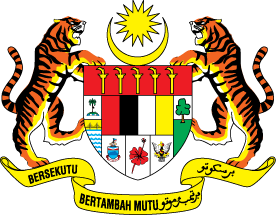





 Home
Home








